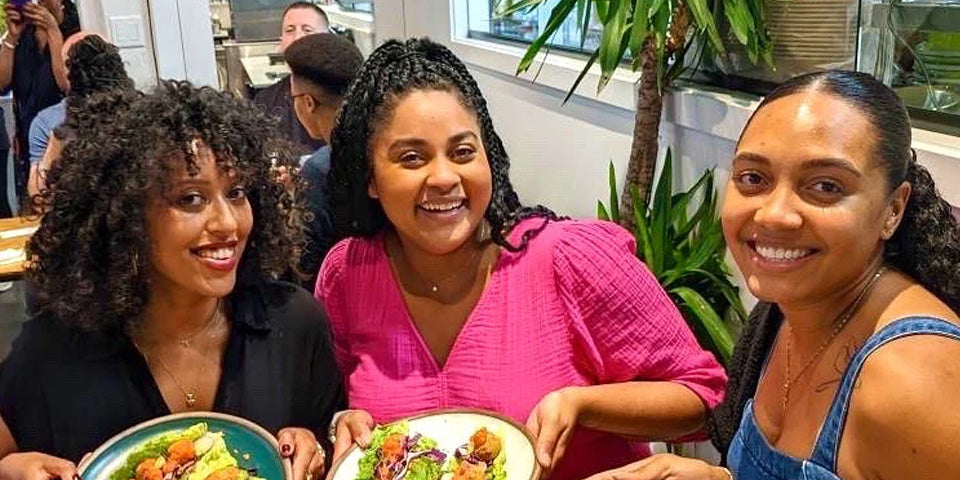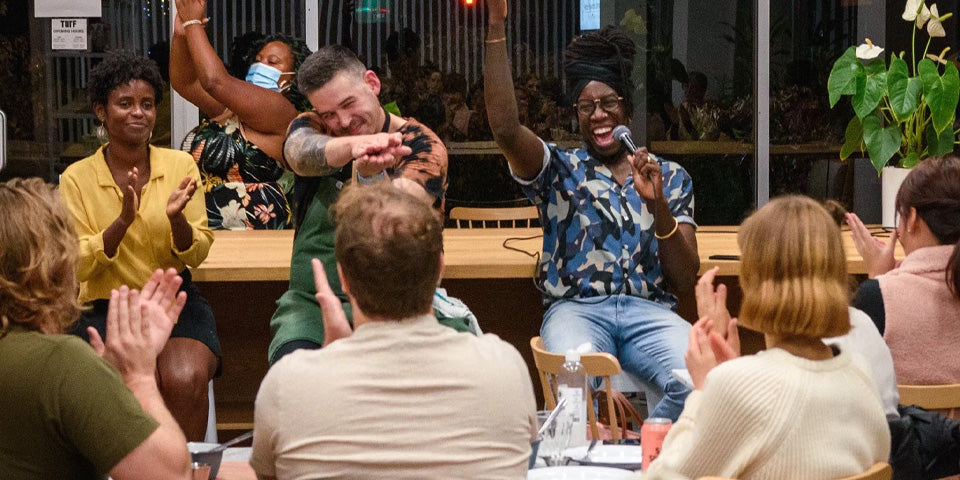Food is so much more than just nourishment—it holds a deep meaning within Black culture. It's a way to preserve our heritage, express our creativity, and build connections within our communities. Our culinary traditions have been shaped by a beautiful blend of influences from West Africa, East Africa, the Caribbean, and the American South. Think mouthwatering dishes like gumbo, collard greens, sukuma wiki, and jollof rice. They're a testament to the resilience, resourcefulness, and creativity of generations past.
Adopting plant-based diets within our communities has had its own set of challenges. Traditional soul food, with its rich and flavorful dishes, often relies on ingredients like meat, dairy, and animal fats. And let's not forget, these ingredients hold cultural significance and are part of our cherished traditions and celebrations. So, understandably, the idea of shifting to plant-based eating initially faced some resistance—worries about abandoning our time-honored ways and cultural authenticity were on our minds.
In addition, factors like limited access to fresh and affordable produce in our communities made it even harder to adopt plant-based diets. We have faced socioeconomic disparities and dealt with food deserts where grocery stores were scarce. It makes sense that it seemed like plant-based eating was out of reach or didn't align with our cultural traditions.
Yet, we've witnessed a powerful movement emerging, debunking those misconceptions and reclaiming plant-based eating within our communities. Activists, chefs, and community leaders have been at the forefront, championing the benefits of plant-based diets while honoring our cultural heritage. They're showing us the incredible adaptability of traditional recipes, demonstrating how we can incorporate plant-based ingredients into our beloved dishes without sacrificing flavor or cultural significance. P.S. Have you tried our latest Kula recipe Plant-based G.O.A.T Curry Bowl? *wink*
What I cherish most is that we're experiencing a growing awareness of health and wellness within our community. We're concerned about health disparities and want longevity and vitality. This has led many of us to reevaluate our diets and consider the power of plant-based eating. We're realizing that it can help break free from the cycle of diet-related illnesses and promote overall well-being.
There are fantastic initiatives happening in our communities. We're talking about community gardens, urban farming projects, and farmer's markets that bridge the gap in access to fresh, affordable produce. These efforts empower us to take control of our food sources, promote self-sufficiency, and fight for food justice.
As the historical connection between our culture and food continues to evolve, adopting plant-based diets is an act of self-determination. We're honoring our heritage while embracing health, sustainability, and the power to create change. By overcoming the barriers that influence our dietary choices, we're redefining our relationship with food, preserving our traditions, and paving the way to a healthier, more empowered future.
Let's celebrate the flavors, the heritage, and the soulful nourishment that make plant-based cuisine in our communities truly special!
Mel x
Team Kula



